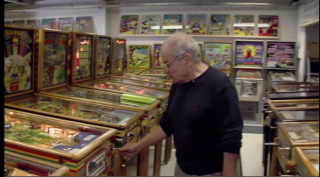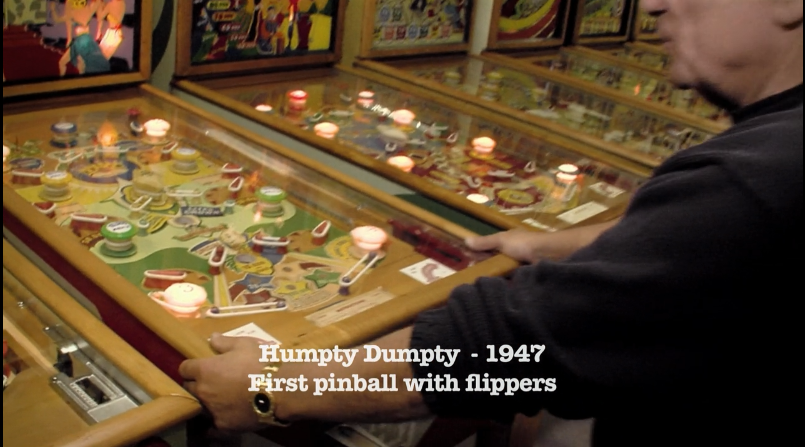Special When Lit: a random pinball documentary
By apathylad 1 Comments
Hey, remember pinball machines? They were all the rage in the 70s, plummeted in the 80s with the rise of video games, gained popularity again in the early 90s, and many of the big companies stopped making machines later that decade. Special When Lit is a 2009 documentary that gives some insight on the history of pinball, the culture that surrounds it, and the people who are passionate about these machines. I learned about the film’s existance via Shipwreck from CheapAssGamer.com, who mentioned it on a recent CAGcast. The documentary is available on Netflix Instant Watch if you’re interested in checking it out for yourself.

Pinball does have a fascinating history, and the community that surrounds it does have a lot of parallels to what is seen in the video game community of today. The movie does explain how pinball machines were often catered to young men, often being covered with art of dark creatures and attractive women. Most pinball fans were young men hanging out amongst themselves, often in locations where you wouldn’t expect to see a family. There was even a period of time where pinball machines were banned in the U.S., apparently, which further showed a rebellious stigma attached to the machines. One of the commenters even drew a parallel about men who play pinball often seem to pose as if they are making love, which is an image I can’t unsee now that the documentary made that fact explicitly clear. @.@

Unfortunately, the pinball fans themselves aren’t very interesting. The film does not focus on specific people, such as Steve Wiebe and Billy Mitchell were made the center of The King of Kong. Some of the collectors who were interviewed were made to look like outcasts, and I’m not sure what the intent was by showing how they differ from other people. For example, in one scene two pinball fanatics were asked by an off-camera person (presumably the director) if they ever planned on settling down and getting married, to which one of the fans said that it would just get in the way of his interest.

The game design explanations will appeal to programmers, such as how a machine is structured, how the rules vary, and how the machines themselves evolved into something skill-based, opposed to being a game of chance in the earlier days. Despite the similarities between the two, a segment of the film had fans blaming the rising popularity of video games as a reason for pinball losing money in the 80s.
The film, as expected, doesn’t have a happy ending. Pinball designer Steve Ritchie comments in the film’s closing that he doesn’t know whether people will care about pinball in 10-15 years. The joys of pinball machines are tangible, and with entertainment going in an increasingly digital direction, I wonder if pinball will ever that same appeal. While a few scenes do drag, I do think Special When Lit does show a platform that was once a major part of the arcade industry.

1 Comments